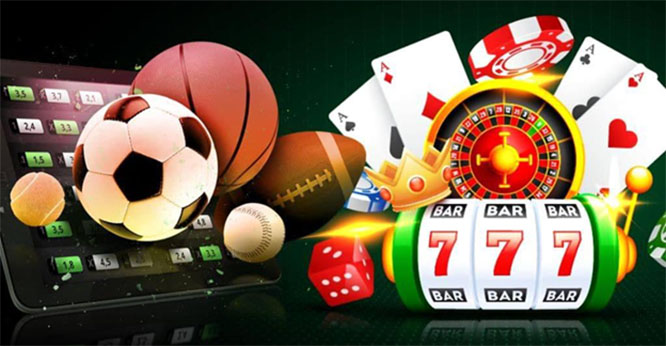The Psychology of Gambling 55

The Psychology of Gambling
The realm of gambling has intrigued humans for centuries, but it is not purely an economic phenomenon. The Psychology of Gambling https://in-mostbet-casino.com/cs/ The psychology behind gambling delves into the intricate web of human emotion, cognition, and social factors that drive individuals to engage in such activities. From the thrill of risk to the illusion of control, understanding the psychological mechanisms at play provides valuable insights into why people gamble and how it affects their lives.
The Allure of Gambling
At its core, gambling is often associated with excitement, anticipation, and the potential for significant rewards. The prospect of winning money can trigger feelings of joy and euphoria, often described as ‘the thrill of the chase.’ This excitement comes from several psychological factors:
1. Risk and Reward
The basic principle of risk versus reward is central to gambling psychology. Both the risks involved and the rewards anticipated contribute to the overall experience. Individuals often find themselves drawn to high-risk scenarios, believing that substantial rewards are worth the gamble. This phenomenon can be exacerbated by the ‘near-miss’ effect, where players feel they were close to winning, subsequently reinforcing their desire to continue gambling.
2. The Illusion of Control
Many gamblers believe they can influence the outcome of games, particularly in games of skill like poker or blackjack. This illusion of control can lead players to take irrational risks, driven by a false sense of security. The belief that skill or strategy can overcome the odds creates a psychological conflict between cognitive reasoning and emotional investment.
3. Social Influences
Social factors significantly impact gambling behavior. Peer pressure, cultural norms, and societal attitudes toward gambling can all influence an individual’s decision to gamble. In some cultures, gambling is seen as a traditional activity, while in others, it may carry a stigma. Additionally, the rise of online gambling has created new social dynamics, where individuals engage with virtual communities, further reinforcing their gambling behavior.
The Psychology of Winning and Losing

The psychological impact of winning or losing is a critical aspect of gambling. Winners often experience a rush of dopamine, enhancing feelings of happiness and satisfaction. Conversely, losses can lead to negative emotions like frustration, disappointment, and regret. Understanding these emotional responses is essential for recognizing the broader implications of gambling.
1. The Winner’s Effect
Winning can have profound effects on an individual’s psychology. The ‘winner’s effect’ refers to the boost in confidence and increased propensity to take risks following a victory. This cycle can lead to further gambling, as winners chase the high of their success, often leading to sustained gambling behaviors.
2. Chasing Losses
On the other hand, losses can trigger a compulsion to ‘chase losses,’ where individuals continue to gamble in an attempt to recover lost money. This mindset can create a debilitating cycle of addiction, where players gamble not for enjoyment but as an emotional escape or a desperate attempt to regain lost funds.
The Impact of Gambling Addiction
While many people gamble for entertainment, for some, it can evolve into a destructive addiction. Gambling disorder is characterized by compulsive behavior, leading to significant negative consequences in various aspects of life, including financial stability, relationships, and mental health.
1. Identifying Problem Gambling
Recognizing the signs of gambling addiction is crucial for intervention. Some common indicators include:
- Preoccupation with gambling
- Need to gamble with increasing amounts of money to achieve the desired excitement
- Repeated unsuccessful attempts to control, cut back, or stop gambling
- Restlessness or irritability when attempting to reduce gambling
- Gambling as a means to escape problems or relieve feelings of helplessness
- Loss of relationships, job, or education opportunities due to gambling
2. The Psychological Toll

Gambling addiction can lead to severe psychological consequences, including anxiety, depression, and feelings of isolation. The shame and guilt associated with gambling losses can further exacerbate mental health issues, leading to a vicious cycle that can be challenging to break.
Effective Strategies for Treatment
Treating gambling addiction often requires a multi-faceted approach, incorporating psychological, social, and medical strategies. Some effective treatments include:
1. Cognitive Behavioral Therapy (CBT)
CBT is a widely used therapeutic approach for various forms of addiction, including gambling. It focuses on changing negative thought patterns and behaviors associated with gambling, helping individuals develop healthier coping mechanisms.
2. Support Groups
Joining support groups such as Gamblers Anonymous provides individuals with the opportunity to share their experiences and seek guidance from others who understand their struggles. The sense of community and accountability can be instrumental in recovery.
3. Medication
In some cases, medication may be prescribed to help manage underlying mental health conditions or reduce cravings associated with gambling. It’s essential that any medication is carefully monitored by a qualified professional.
Conclusion
The psychology of gambling is a complex interplay of emotion, cognition, and social interaction. Understanding the psychological mechanisms behind gambling behaviors can pave the way for more effective treatments for those struggling with addiction, as well as promote responsible gambling practices. As we continue to explore this fascinating domain, it’s important to foster awareness and support for those affected by gambling in its many forms.